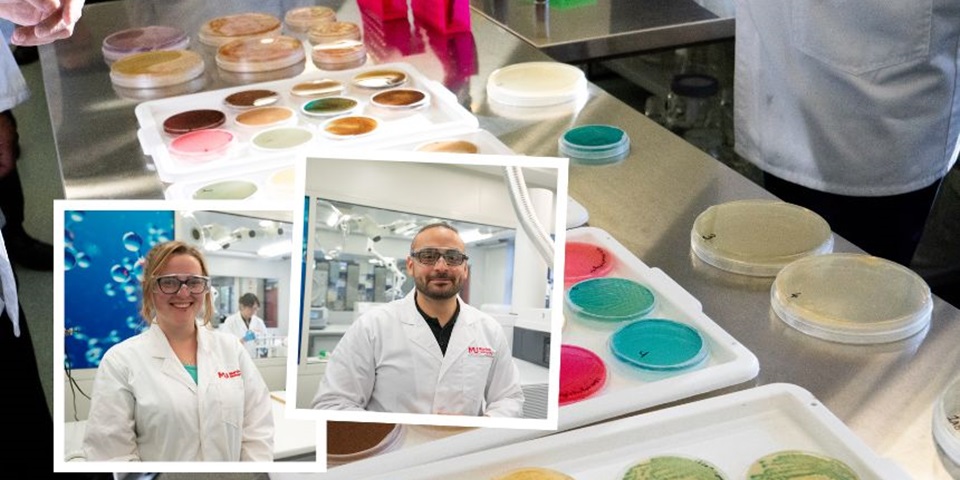News
Meet the team on a mission to end plastic waste

When Murdoch University’s bioplastic scientists look into the future, they see families sitting down for picnics in the park sipping from convenient and fully compostable cups.
They see retail packaging that breaks down in compost, land and water, leaving behind no legacy. And, above all, they see a clean, sustainable path to net zero.
However, we have a long way to go. Australia has one of the highest rates of plastic consumption in the world, with each person using an estimated 148kg per year and recycling just 14% of it.
In 2024, Murdoch University and CSIRO launched the Bioplastics Innovation Hub, where top scientists and doctoral candidates have begun working with industry partners to create a new generation of 100% compostable plastic.
Their ultimate goal is to introduce a green plastic to the market that will minimise and eventually negate the need for non-sustainable plastic production worldwide.
The path to making lasting change
Joseph Boctor, who moved from Egypt to Perth in 2023 to help tackle plastic pollution in his home country, is one of the scientists working on the project.
His passion was initially sparked by the desire to depollute the Nile River. The Nile, on top of being the longest river in the world, is the source of life for all agriculture and the main source of potable water in Egypt – and it is full of plastic pollution.
Joseph is currently researching the ability of the Greater Wax Moth to eat and use fossil-based plastics as energy sources – a remarkable feature which evolved through eating a similar polymer, beeswax.
“I strongly believe that we have a huge responsibility towards keeping the earth habitable and healthy for all living species, including ourselves. Solving the plastic problem is a major step in that,” he said.
Samantha Viljoen joined the Bioplastics Innovation Hub team after completing her Master’s Project – which investigated the release of microplastics from teabags.
“This research led me to discover how many everyday items contain secret plastics,” she said.
“The sheer quantity of items, like teabags and makeup wipes, that contain plastic is alarming.”
Day-to-day, Ms Viljoen and Mr Boctor work alongside leading scientists in the hub conducting experiments, analysing results and refining plastic breakdown techniques.
Among these innovations is the Smart Sprays Project, which will carry enormous benefits for the entire agricultural sector.
The project will demonstrate and test a non-toxic, bioplastic-based spray which forms a water barrier to harvest rainfall and reduce evaporation that can be easily applied with existing farm equipment.
These sprays do not degrade into microplastics and will not need to be retrieved from the field as they will biodegrade in soil.
“Plastic is an integral part of life; we cannot just stop using it without a viable alternative,” Ms Viljoen said.
A brighter future to me looks like the responsible use of plastic globally. This includes corporation accountability, better education on the plastic waste problem and the production of biodegradable plastic that leaves no lasting legacy.
Green plastic will not only help reach the United Nations’ goal of reaching net zero as of 2050, but it will also have a society-wide impact that will better the planet for generations to come.
News
Meet the team on a mission to end plastic waste
Posted on
Topics